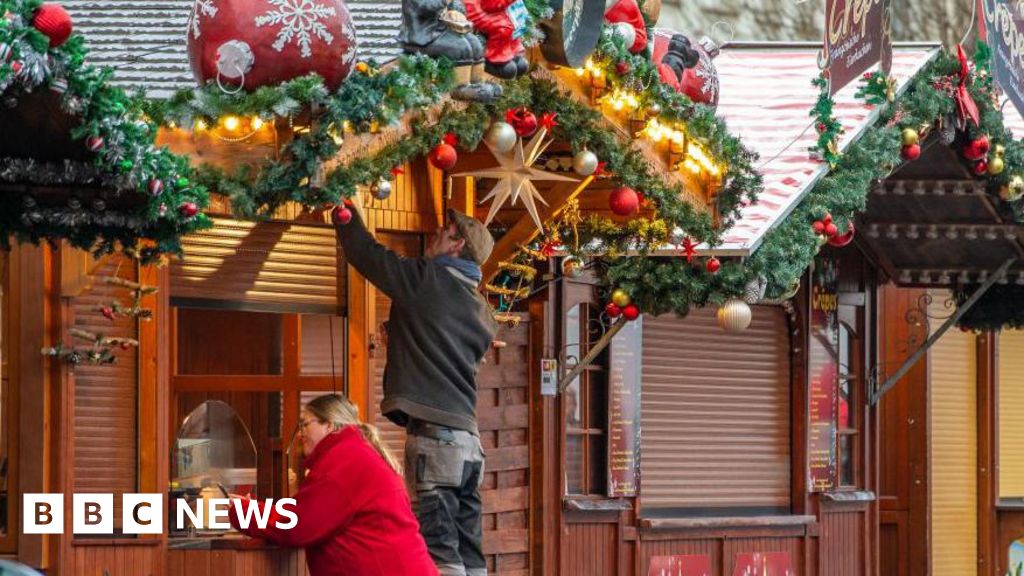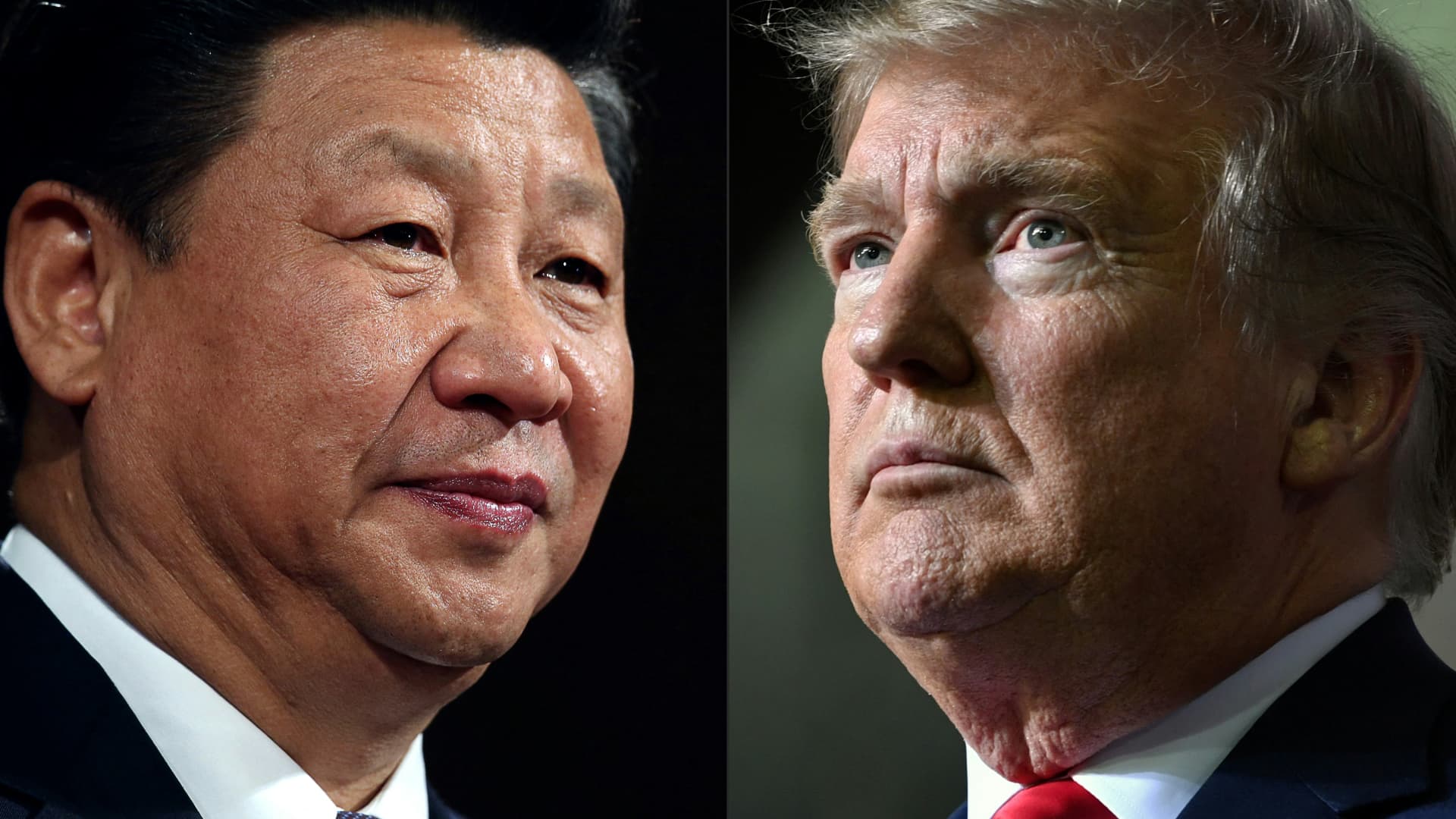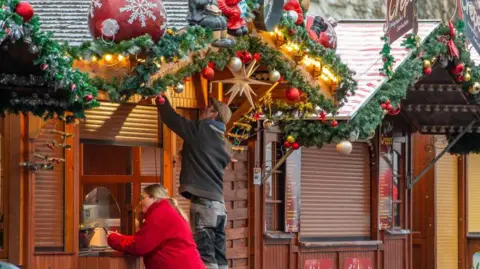 Getty Images
Getty Images“I feel bad, I still do,” said Eidwicht, as she stood in the Christmas market close to the spot where the car sped through on Friday, killing five people and injuring more than two hundred others.
“My granddaughter was here. I rang her because my daughter told me that something had happened here. And she didn’t answer for two hours.”
There is deep sadness here – and anger directed at the government and migrants. “It can’t go on like this,” said Eidwicht.
A Saudi refugee aged 50 has been arrested for the attack but the motive is unknown.
Officials say Taleb Al-Abdulmohsen, was an “untypical” attacker. Germany’s Christmas markets and festivals have come under attack before, mainly from extreme Islamists.
He has been described as critical of Islam and he also voiced support on social media for the far-right Alternative for Germany party, hailing the party for fighting the same enemy as him “to protect Germany”.
The AfD has not commented on those posts – and the party is planning a procession of mourning in Magdeburg later on Monday, with national party leader Alice Weidel attending.
Her party is currently riding high in the opinion polls ahead of federal elections on 23 February, especially in states like Saxony-Anhalt in the former East Germany.
This attack has brought two big elections issues to the fore, security and immigration, and AfD figures have highlighted both since the attack.
Despite the suspect’s many statements expressing hostility to Islam, the head of the AfD in Sachsen-Anhalt, Martin Reichardt, said in a statement “the attack in Magdeburg shows that Germany is being drawn into political and religious fanaticism that has its origins in another world”.
In a post on X, Weidel said the government’s discussion of new security laws following the attack “must not distract from the fact that Magdeburg would not have been possible without uncontrolled immigration. The state must protect its citizens through a restrictive migration policy and consistent deportations!”
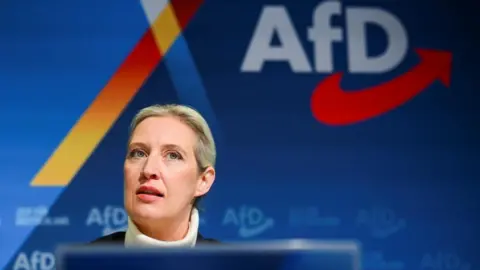 Reuters
ReutersA counter-demonstration will also be held and anti-racism groups in Magdeburg have accused the AfD of exploiting the attack.
David Begrich from Miteinander e.V. said people in the city needed a chance to catch their breath.
“In the migrant communities, there is great concern about being made into a scapegoat,” he said. “We don’t want that. We want to organise solidarity across society, but at the same time we are also sensitive to the voices of those who are now reacting with fear and uncertainty.”
Germans are asking how the attack could have happened, when security was already heightened at Christmas markets and when authorities had clearly investigated the suspect several times in recent years.
The threat he posed was considered “too unspecific”, according to one assessment, while one tip-off against him in September 2023 appears to have fallen through the cracks.
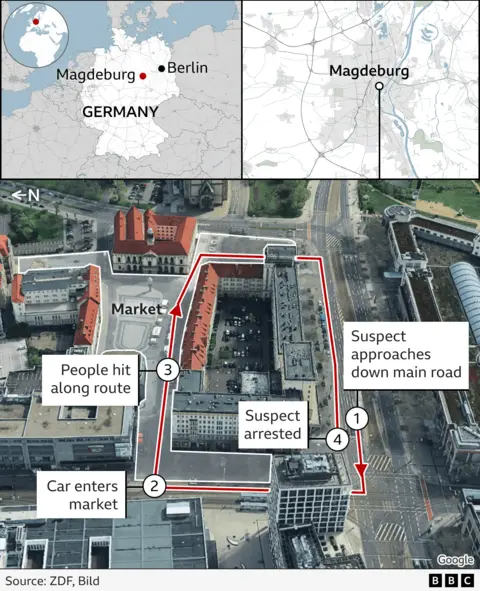
In another apparent security failing, the driver was also able to get through a gap that had been left open for emergency access when it should have been filled by a police van.
Stallholders at the Christmas market have now been allowed to come back, to throw away old food and remove their equipment and stocks.
None that I approached wanted to speak to the BBC. It’s all too raw.
There has also been hostility towards journalists over the past few days, especially after some 2,000 people joined a protest by the far right in Magdeburg on Saturday night.
The Association of German Journalists said there had been aggression and threats against the press and appealed for greater police protection.
The BBC team joined mourners gathered in Cathedral Square for a live stream of the vigil for victims of the attack and many who spoke to them said it was important to show solidarity at a time of terrible distress.
But one woman struck a note of caution. There are “some Nazis here, who don’t like journalists,” she said. “Please be careful.”







